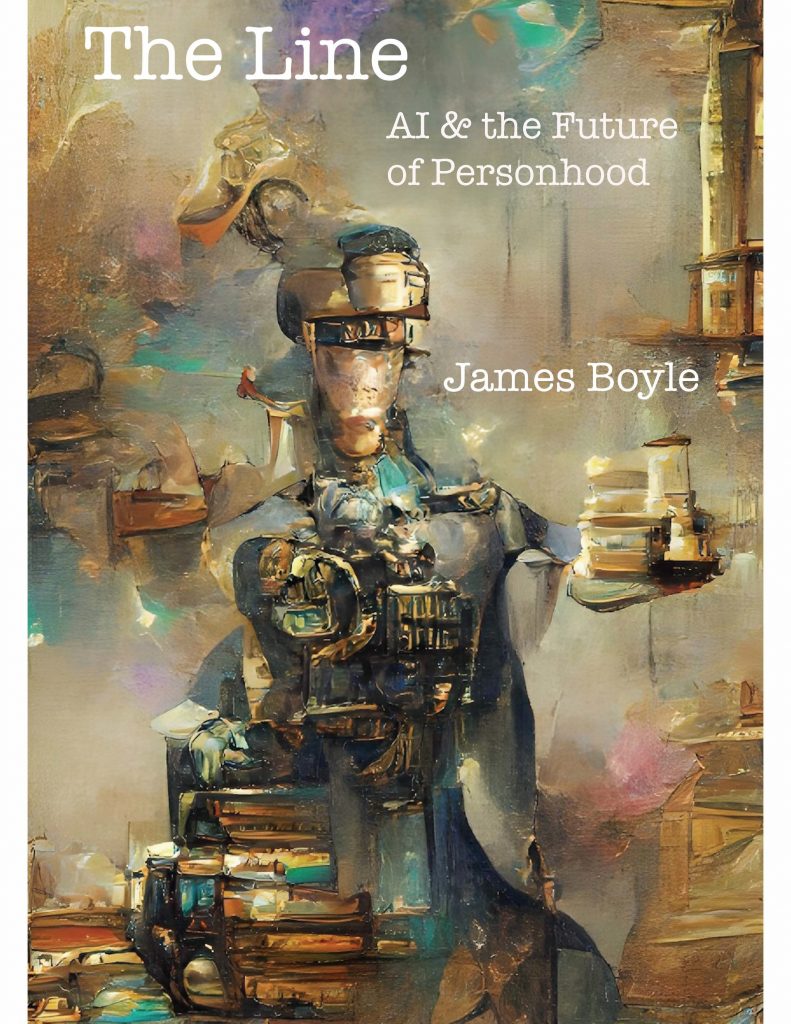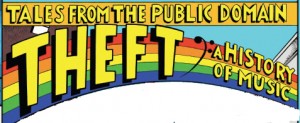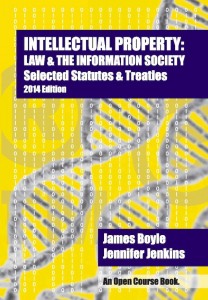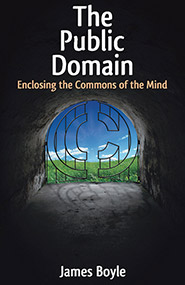Professor Alex Sayf Cummings, author of a fascinating book called Democracy of Sound: Music Piracy and the Remaking of American Copyright in the 20th Century (recommended as a thought-provoking read) has an interesting post up about attempts to shut down music lyric sites such as Rapgenius.com. He joins issue in particular with David Lowery and Mr. Lowery’s recent Undesirable Lyric Website List which attempts to identify song lyric websites that appear to be unlicensed — a list that has prompted legal action against some of these sites. The title of Professor Cummings’ article — “The Foolish War Against Song Lyrics Websites” — gives some sense of his thesis.
I have written criticizing the move to regulate music copyright in an increasingly granular way and the tendency to claim copyright infringement for actions that prior generations took as a normal part of creativity. I have argued both in my book The Public Domain and in a comic book on fair use that the introduction of a “borrowing = wrong = a need for licensing” culture may well a.) fundamentally misstate the law and b.) be bad for creativity, in music and elsewhere. I have also argued that we should not have a vision of perpetually expanding copyright that aims for total control over every use of copyrighted work — that that is foreign to the Anglo-American intellectual property tradition and potentially dangerous to the architecture of the open internet.
So when Professor Cummings criticizes the attempt to force song lyric websites to pay licensing fees to the copyright owners of the lyrics of those songs, I should wholeheartedly agree with him. Right? Actually, I find the issue much more complex. As I see it, Professor Cummings has two main arguments. [The article is short — so please read it yourselves and do not rely on my summary.] The first is based on the difficulty or impossibility of enforcing rights online (which of course is not a normative position, just a practical one) and the second based on the idea that intellectual property rights are limited, not absolute, and their constant expansion is unwise.
On the first, I find this argument incomplete.
Lots of laws are hard to enforce. For many of them — for example, those that criminalize very low level speeding or private consensual adult sexual activity that violates norms against certain types of sexual desire — we think that the difficulty of enforcement is either a really good thing, or no big deal. For others, such as laws against human trafficking, or random marine spot pollution that is hard to trace to an individual source — we think that the difficulty of enforcement is tragic; we’d love full enforcement if we could. I am not saying any of these is morally equivalent to quoting lyrics.. Duh. I am saying that the assertion that the law is hard to enforce tells us little about whether that is a good or a bad thing. And the difficulty of enforcement, by definition, is not a very good argument against the attempt to… well, enforce the law: the very thing Mr. Lowery is attempting to galvanize copyright holders to do. In fact, if it is so hard to enforce, why worry about his attempts? Difficulty of enforcement can be part of a normative argument. At the end of Prohibition, the fact that enforcement was so hard because people did not find the law to be legitimate provided a good argument for repeal. And one could argue such a case here. But enforcement difficulties alone don’t provide a normative ground to stand on.
On the second argument: Intellectual property rights are limited and not absolute and we should not constantly be expanding them towards total control. +1 on that argument. But to be fair to Mr. Lowery, the right he is asking be enforced — namely that over the unlicensed reproduction of lyrics — is not an expansion of copyright. In fact, the right to control reproduction of lyrics is probably the oldest right in the music copyright bundle. There was a time when songwriters had neither the right to control public performances, nor mechanical reproductions, nor performances over the radio. In each case, the law was expanded to cover those uses. But ever since copyright has covered songs, composers have had the right to control the copying (at least the commercial copying) of their lyrics. That is a point worth emphasizing.
..
One can argue whether exercising that control is wise on the part of the artist, though that is surely the artist’s decision to make, provided it is within his or her exclusive rights under copyright. Or one could argue whether, if accompanied by commentary and critique — as in Rapgenius — the reproduction of lyrics is a fair use under section 107 of the copyright act. (In which case it would not be within their exclusive rights.) To be clear, I think some quotations of lyrics online definitely qualify as a fair use. What about an entire, relatively complete library of song lyrics, reproduced in their entirety — particularly one with commercial goals and VC funding? There the fair use argument is harder to make. But leaving aside the fair use point, it is not an expansion of copyright for one to attempt to cover that kind of activity. Nor does it seem unjust in the least for the song writer to ask for licensing fees for inclusion of lyrics in such a for profit enterprise. A true, non commercial fan site, with episodic and fragmentary inclusion of lyrics, interspersed with commentary would be very different. In other words, it is fact specific. And commercial sites that are truly transformative and provide limited access to snippets of material that would otherwise be inaccessible and in which the demand for up-front permission would destroy the index — think Google Books — can be fair uses. Yet Google Books would not have been found a fair use if it gave you the entire copyrighted work. Those who know more about lyrics sites can judge how many fall on each side of those lines.
Bottom line: one can be against the demand for commercial lyric reproduction sites to pay licensing fees to song writers. But one cannot really portray that demand as an expansion of copyright. It is just an application of the oldest right in the composer’s bundle of rights. One can be against the entire bundle, of course. (I am very definitely not, but some are.) Or one could say that attempts to regulate the internet to ensure full and perfect compliance with all rights will lead to unwise regulation of the technology in a way that will hurt all of us, creators and audiences alike. (I would agree with that point.) But on grounds of both law and policy, I think that more nuance is needed before we criticize the lyricist who wants to get paid from a large scale commercial site that is aiming to make money by reproducing lyrics in their entirety, that is, doing something that has been central to the rights of copyright holders for a long time. That’s different, I think, than trying to stop non profit uses, amateur remixes or commercial borrowings that take a few bars of a jazz standard or a James Brown song, and build them into an entirely different song. One can be for or against all of these, but one should not think they are the same. And if, when I can’t remember the lyric from that song, or want to get someone to explain to me whether The Beat’s “Save it For Later” is really an homage to oral sex, or why Elvis Costello is worried about “Night Rallies,” my click — and the ads it loaded onto the slick, commercial, virus-free site where I found the words — if that click sent a fraction of a cent to The Beat or to Elvis Costello, as well as to the people who coded the website, why then I would think that was a pretty good result.








